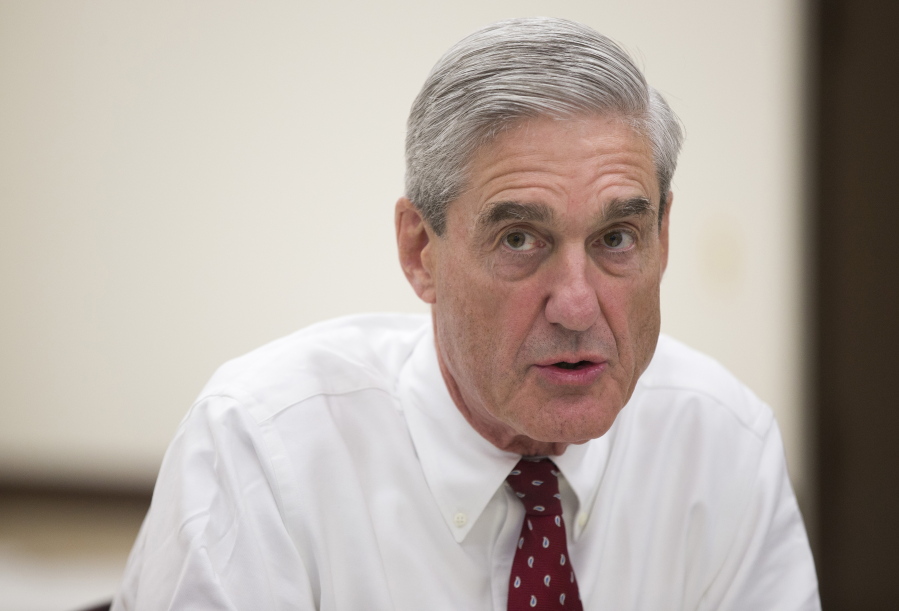The special counsel overseeing the investigation into Russia’s role in the 2016 election is interviewing senior intelligence officials as part of a widening probe that now includes an examination of whether President Donald Trump attempted to obstruct justice, officials said.
The move by Special Counsel Robert Mueller to investigate Trump’s own conduct marks a major turning point in the nearly year-old FBI investigation, which until recently focused on Russian meddling during the presidential campaign and on whether there was any coordination between the Trump campaign and the Kremlin. Investigators have also been looking for any evidence of possible financial crimes among Trump associates, officials said.
Trump had received private assurances from former FBI Director James Comey starting in January that he was not personally under investigation. Officials say that changed shortly after Comey’s firing.
Five people briefed on the requests said Daniel Coats, the current director of national intelligence, Adm. Mike Rogers, head of the National Security Agency, and Rogers’ recently departed deputy, Richard Ledgett, agreed to be interviewed by Mueller’s investigators as early as this week.
The NSA said in statement that it will “fully cooperate with the special counsel,” and declined to comment further. The office of Director of National Intelligence and Ledgett declined to comment.
The White House now refers all questions about the Russia investigation to Trump’s personal lawyer, Marc Kasowitz. “The FBI leak of information regarding the president is outrageous, inexcusable and illegal,” said Mark Corallo, a spokesman for Kasowitz.
The officials said Coats, Rogers and Ledgett would appear voluntarily, though it remains unclear whether they will describe in full their conversations with Trump and other top officials, or will be directed by the White House to invoke executive privilege. It is doubtful the White House could ultimately use executive privilege to try to block them from speaking to Mueller’s investigators. Experts point out that the Supreme Court ruled during the Watergate scandal that officials cannot use privilege to withhold evidence in criminal prosecutions.
The obstruction of justice investigation into the president began days after Comey was fired on May 9, according to people familiar with the matter. Mueller’s office has now taken up that work, and the preliminary interviews scheduled with intelligence officials indicate his team is actively pursuing potential witnesses inside and outside the government.
The interviews suggest Mueller sees the attempted obstruction of justice question as more than just a “he said, he said” dispute between the president and the fired FBI director, an official said.
Probing the president for possible crimes is a complicated affair, even if convincing evidence of a crime is found. The Justice Department has long held that it would not be appropriate to indict a sitting president. Instead, experts say the onus would be on Congress to review any findings of criminal misconduct and then decide whether to initiate impeachment proceedings.
Officials said one of the exchanges of potential interest to Mueller took place on March 22, less than a week after Coats was confirmed by the Senate as the nation’s top intelligence official.
Coats was attending a briefing at the White House together with officials from several other government agencies. When the briefing ended, Trump asked everyone to leave the room except for Coats and CIA Director Mike Pompeo.
Coats told associates that Trump had asked him if he could intervene with Comey to get the bureau to back off its focus on former national security adviser Michael Flynn in its Russia probe, according to officials. Coats later told lawmakers that he never felt pressured to intervene.
A day or two after the March 22 meeting, Trump telephoned Coats and Rogers to separately ask them to issue public statements denying the existence of any evidence of coordination between his campaign and the Russian government.
Coats and Rogers refused to comply with the president’s requests, officials said.



